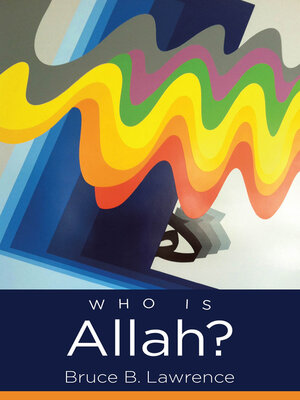
Sign up to save your library
With an OverDrive account, you can save your favorite libraries for at-a-glance information about availability. Find out more about OverDrive accounts.
Find this title in Libby, the library reading app by OverDrive.



Search for a digital library with this title
Title found at these libraries:
| Library Name | Distance |
|---|---|
| Loading... |
This vivid introduction to the heart of Islam offers a unique approach to understanding Allah, the central focus of Muslim religious expression. Drawing on history, culture, theology, politics, and the media, Bruce B. Lawrence identifies key religious practices by which Allah is revered and remembered, illuminating how the very name of Allah is interwoven into the everyday experience of millions of Muslims.
For Muslims, as for adherents of other religions, intentions as well as practices are paramount in one’s religious life. Lawrence elucidates how public utterances, together with private pursuits, reflect the emotive, sensory, and intellectual aspirations of the devout. Ranging from the practice of the tongue (speaking) to practices in cyberspace (online religious activities), Lawrence explores how Allah is invoked, defined, remembered, and also debated. While the practice of the heart demonstrates how Allah is remembered in Sufism, the mystical branch of Islam, the practice of the mind examines how theologians and philosophers have defined Allah in numerous contexts, often with conflicting aims. The practice of the ear marks the contemporary period, in which Lawrence locates and then assesses competing calls for jihad, or religious struggle, within the cacophony of an immensely diverse umma, the worldwide Muslim community.
For Muslims, as for adherents of other religions, intentions as well as practices are paramount in one’s religious life. Lawrence elucidates how public utterances, together with private pursuits, reflect the emotive, sensory, and intellectual aspirations of the devout. Ranging from the practice of the tongue (speaking) to practices in cyberspace (online religious activities), Lawrence explores how Allah is invoked, defined, remembered, and also debated. While the practice of the heart demonstrates how Allah is remembered in Sufism, the mystical branch of Islam, the practice of the mind examines how theologians and philosophers have defined Allah in numerous contexts, often with conflicting aims. The practice of the ear marks the contemporary period, in which Lawrence locates and then assesses competing calls for jihad, or religious struggle, within the cacophony of an immensely diverse umma, the worldwide Muslim community.







